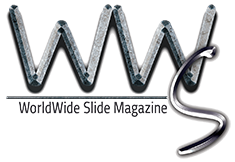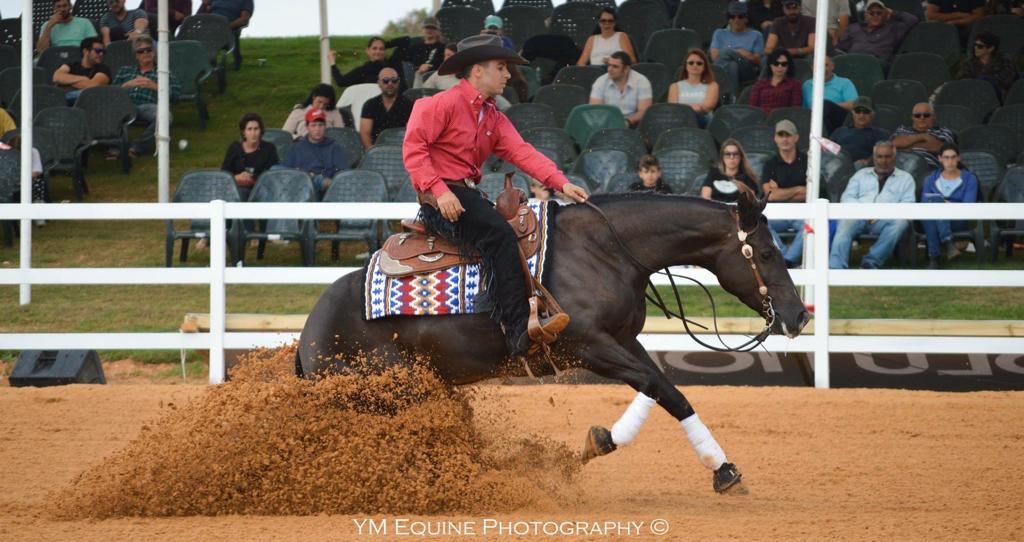
Located along the eastern coastline of the Mediterranean Sea, Israel is a relatively small country stretching about 420 miles north and south, and around 70 miles between the widest east-to-west points. It possesses a wide variety of terrain and mountains, plains, and deserts are often only minutes apart. The varied landscape and temperate climate make it a popular destination for trail riders. As a matter of fact, trail riding, pole bending, barrel racing, jumping, and dressage were the main equestrian pastimes before reining made its appearance about 20 years ago.
Two men are credited with bringing reining to the small country, Uri Peleg and Ilan Rosenverg. In Israel, they stood out as western riders competing mostly in pole bending, barrel racing, roping, and they each owned cattle ranches, but it was after they went to the United States that the two men discovered the art of reining. Peleg worked on cattle ranches and with cutting horses, and Rosenverg worked with a cow horse/reining trainer. In those positions, the men became fascinated with the horsemanship challenge that reining offered and worked to get a reining class added to their all-around western shows.
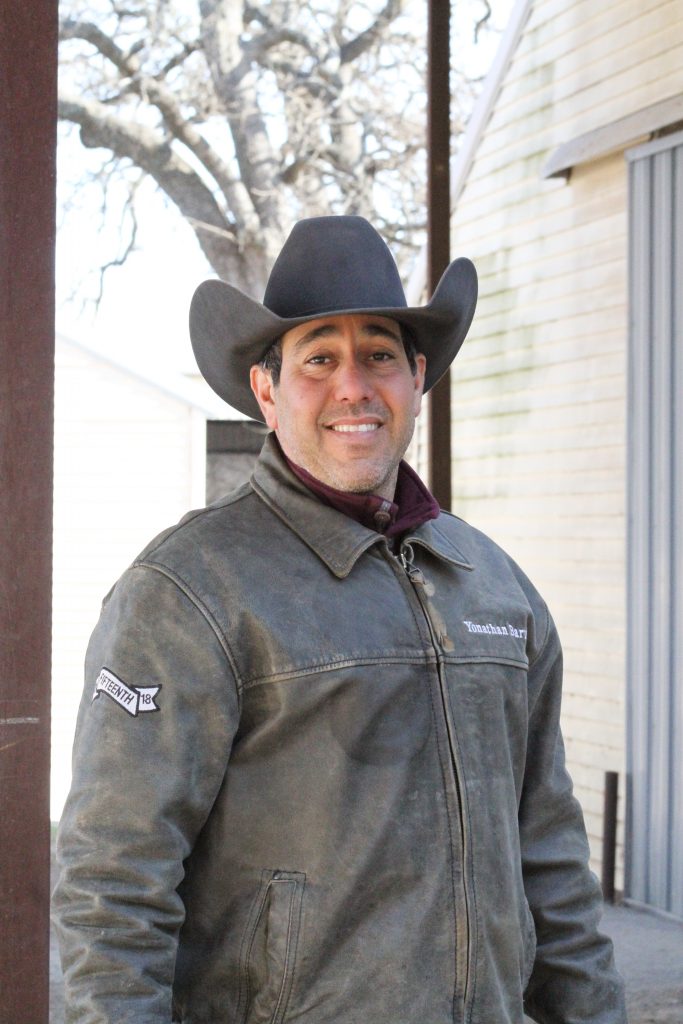
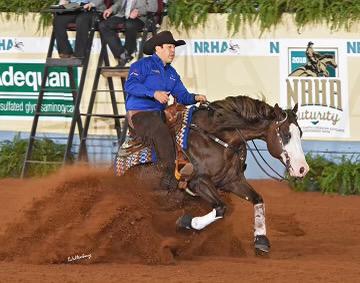
NRHA Professional and Israel native Yonathan Baruch remembers the early reining classes well, as he studied under Rosenverg. “It was very similar to what was here in the U.S. when reining first started,” he explained. “It was basically a class that had multiple things. You had to go over a pole, change leads, turn around, and stop. It was very similar to what we do now in a ranch riding class, but the pattern was more like a reining pattern with a couple of obstacles.”
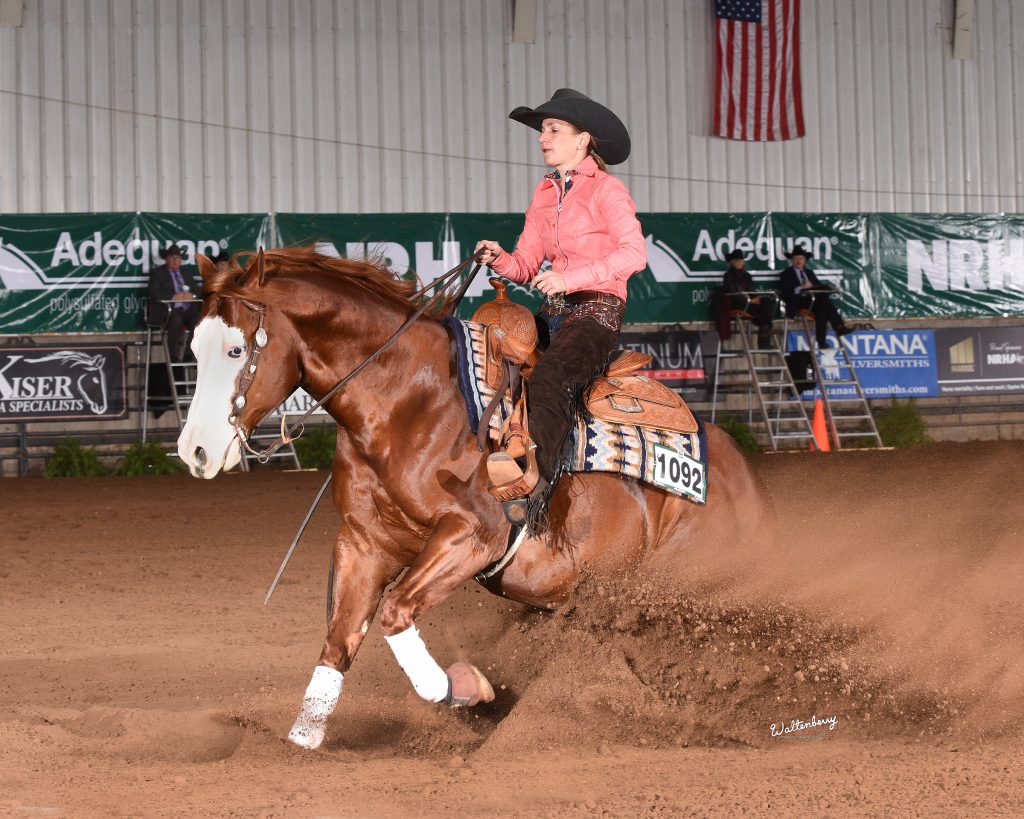
Just as it did in the U.S., the class kept evolving until in the late 90s, it became the modern reining discipline. Early on, knowledge of the event was rather limited so ambitious young trainers like Baruch often made their way to the U.S. to improve their skills. Hava Vital is one of them. She said, “I knew Yonathan very well when I was home, so I came here to visit him and see what it was all about because I knew I wanted to be a trainer and get better.”
Barak Gibori is another NRHA Professional who traveled to the U.S. to learn, but he has since taken his new skills back home. He feels that his time abroad was well worth it. “I was in the U.S. for eight years, and you learn a lot besides just training horses, like, how to deal with customers and non pros and selling horses and behind the scenes of the industry. There are a lot of things that are important to know as a horse trainer besides just how to stop and turn a horse,” he said.
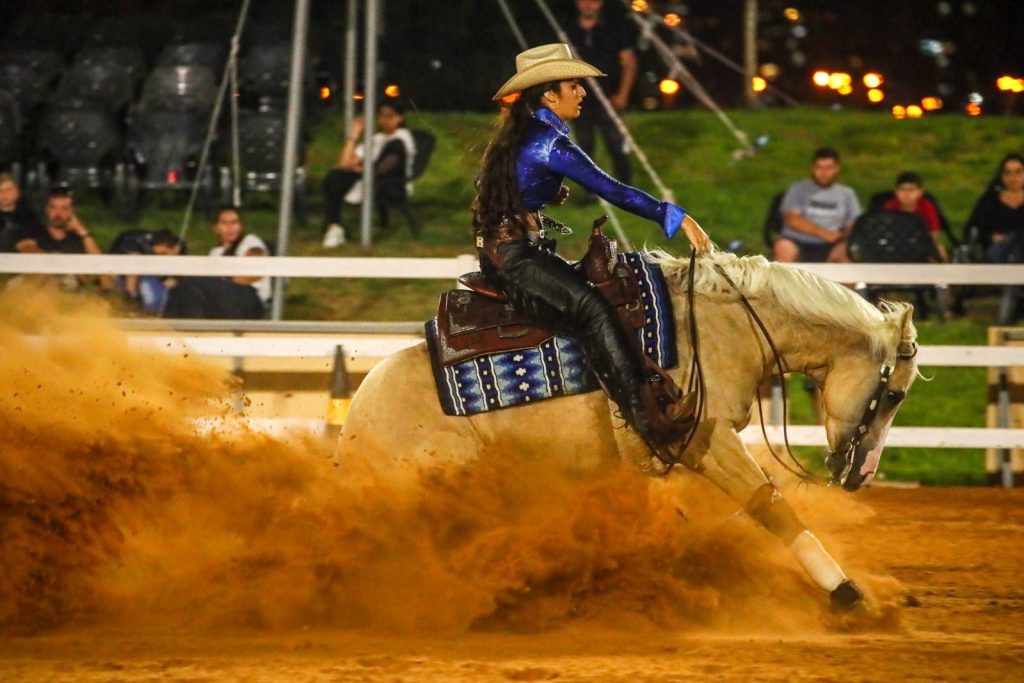
Yali Avraham has had her sights on learning from American trainers for a long time. She said, “Ever since I got my first reining horse when I was 11, I have known that I wanted to finish the army in Israel, then come here to learn more, do more, and work with more trainers. Just get better.”
Besides knowledge, reining in Israel faces its own unique challenges. Vital explained some of them, “The most difficult things over there are space and money. We don’t have a lot of space to raise the horses, and whoever has the space is pretty lucky. I also think feeding is more costly. Everything costs more.”
Also adding to the cost is the difficulty in transporting items. Because Israel is such a small country, many things have to be imported from other countries and flown in. For example, an arena drag may have to be flown in from Poland, or if a TheraPlate was ordered from the U.S.A., there may not be a technician in Israel that could maintain parts and repairs for it.
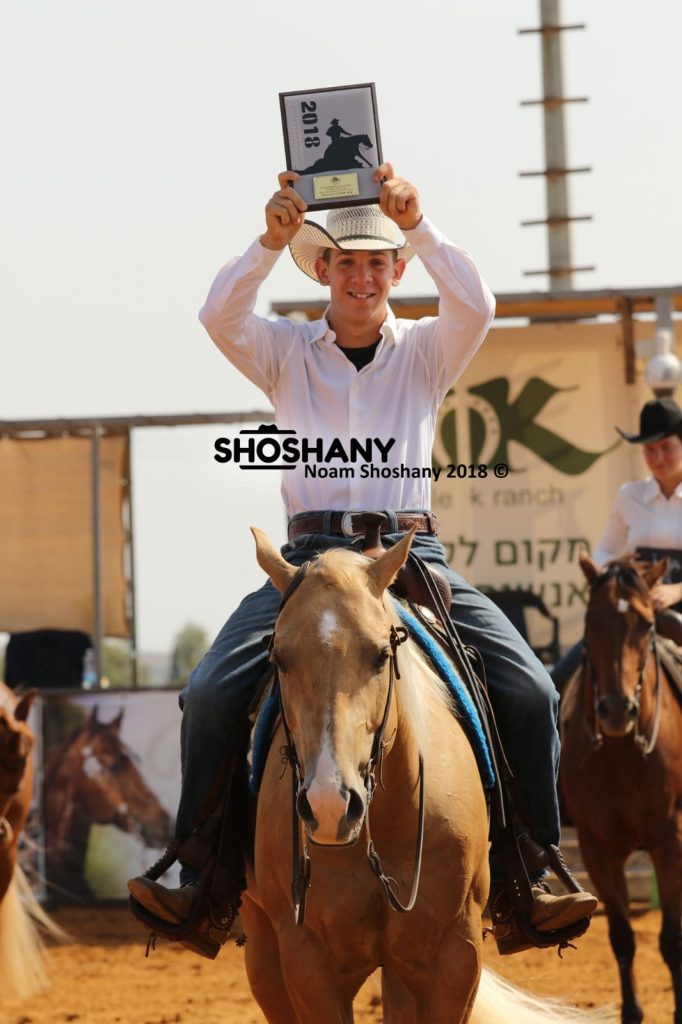
Also having to be flown in for a reining show are judges. A reining event is typically four days long with only two days of showing; the first two days are for arrival and set up. Judges are flown in from Europe or the U.S. and Israel provides them with the best hospitality possible.
“Israel is a nice country for a tourist. There are a lot of cool places to see, so we take care of our judges,” explained Ido Bressler, another young trainer who left Israel to improve his craft in the U.S. “It’s really nice because the judges always have nice things to say about Israel. We are a small country and being able to set up those beautiful facilities that we have there, it’s something that we should be proud of.
“The judges we host have judged the major events back in Italy, or in the U.S. at the Futurity finals or NRBC. It’s really fun to be able to bring people in with so much knowledge. I mean, they’ve seen some nice horses, and some 75 kinds of runs, and they go back home and always say nice things about the industry in Israel and the way things are going.”
“We do have judges in Israel, but most often, we prefer to bring them in from other countries because Israel is so small and we all know each other,” said Yali Avraham, another Israeli citizen working her way to knowledge in the U.S. “Bringing people in from outside keeps things fair for everyone.”
Even with the above-listed obstacles, reining in Israel continues to grow and thrive. Amit Harlev is a non pro who splits her time between showing in the U.S. and showing in Israel. She said, “We are gaining. We have good horses, and we’re breeding more and more. We have good riders, and all of the non pros are really fierce competitors. We are hard workers, and we’re always really competitive.”
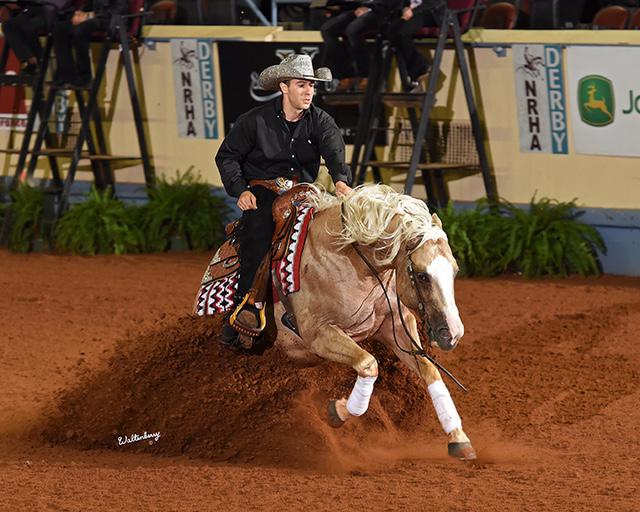
Gibori who is perpetuating the growth of the industry by spearheading the beginning of the Israel Reining Breeders Classic, modeled after the U.S.’s National Reining Breeders Classic, agreed with Harlev’s statement. He said, “It does keep getting bigger and better all the time. You know, how when you are growing, you go forward a little bit, then stay the same for a while, then move forward again, but it always keeps getting bigger and better. The number of trainers, horses, and customers that are starting to understand more about the industry is growing all the time.”
The class structure of the Israel Reining Horse Association is similar to that in the U.S. albeit smaller. The Non Pro is broken into Intermediate, Limited, and Prime Time, while Rookie is singular without levels. There is a Novice class and an Open.
Youth competitions are set up differently, however. While adults compete at devoted reining shows, youth get their feet wet in reining at all-around youth shows that feature lots of different events allowing them to have a well-rounded range of knowledge by the time they are adults and choose which event they prefer. Even though Israel is a small country with lots of other options for equestrians, the hard work of people like these is beginning to pay off. The country saw a 14% increase in memberships from last year, and interest in the event is expected to continue to grow.
